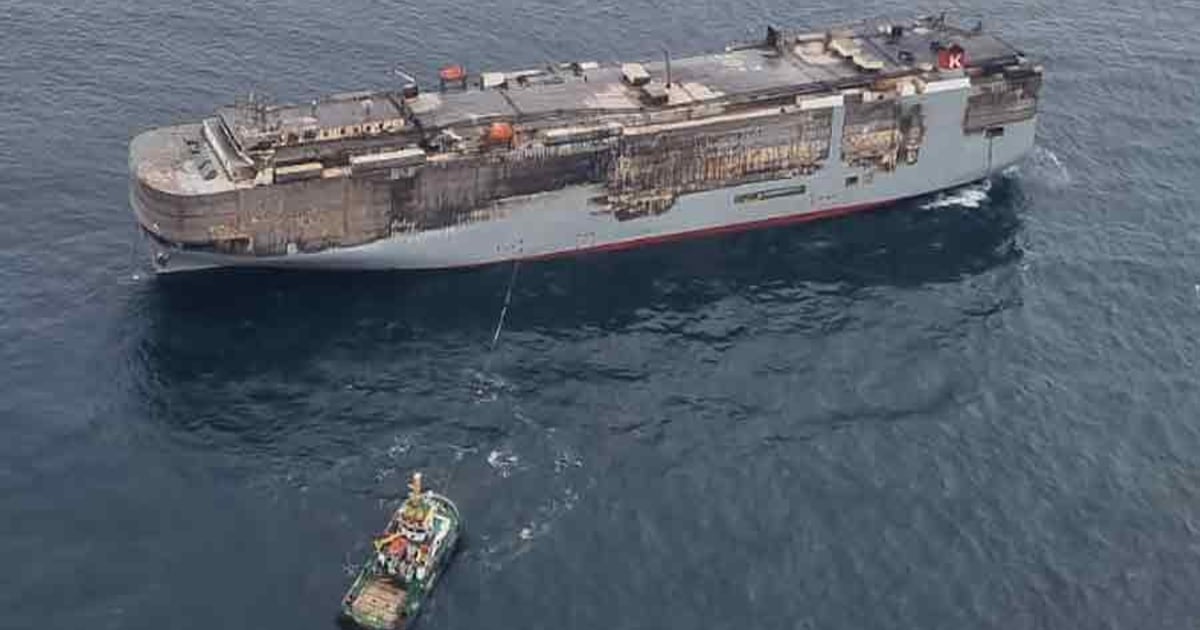
The Fremantle Highway, the car carrier ship that caught fire off the Dutch coast last week, could generate a cargo loss of more than $330 million, said Patrick Anderson, an economist with Anderson Economic Group.
“It does appear after multiple days of fire that it is likely that all of the cars are a total loss and be very difficult to salvage any vehicles out of this,” he said. “Certainly no vehicle that endured that fire damage and water damage can be sold as new in the United States.”
Anderson, whose firm is based in East Lansing, Mich., referenced the Felicity Ace fire in 2022, when he called for a safety review of commercial car carriers. The Felicity Ace was carrying about 4,000 vehicles, including Volkswagens, Porsches, Audis, Bentleys and Lamborghinis — some of them electric with lithium ion batteries — when it caught fire and sank in the Atlantic Ocean.
The fire on the Panamanian-registered Fremantle Highway, which was carrying new cars, resulted in the death of a crew member and the injury of seven others who jumped overboard to escape the flames.
Charter company K Line said Friday there were 3,783 vehicles on board the ship — including 498 battery electrics, significantly more than the 25 initially reported, according to Reuters.
The carrier has been towed to a location away from shipping lanes as part of salvage operations, the Dutch public works and water management ministry said Monday.
Laura Baucus, director of automotive and automotive supply chain practices at Detroit law firm Dykema Gossett, said automotive supply chain shipping is becoming busier, making a potential fire that much more dangerous.
“Vessels are increasing in size, shipping routes are getting busier, ships are packed tighter and sometimes overloaded,” she said. “In this type of environment, if a fire breaks out, the entire cargo might be at risk very quickly.
“With the extraordinary amount of losses from a shipping vessel fire of this magnitude, I expect numerous recovery actions will be filed against any potentially liable person or company,” Baucus said. “I would not be surprised to see litigation involving environmental damage claims, too.”
Said Anderson: “There needs to be a serious, immediate effort to look at safety of these carriers that are holding electric vehicles, because now we have a second half-billion-dollar loss, and tragically, we have loss of life, too.
“If the Felicity disaster didn’t highlight that the transit system is not set up for safely transporting EVs, certainly the Fremantle Highway has to do that.”
The losses of the Felicity Ace likely exceeded early estimates and were potentially as high or higher than $355 million.
The Felicity Ace cargo included 189 Bentleys carrying an average price tag of about $300,000, according to a Bentley spokeswoman at the time.